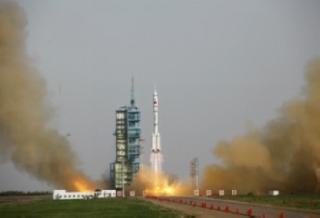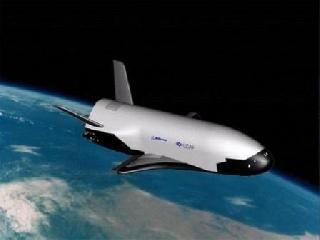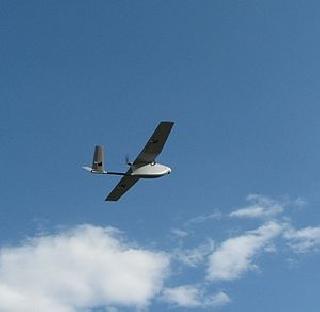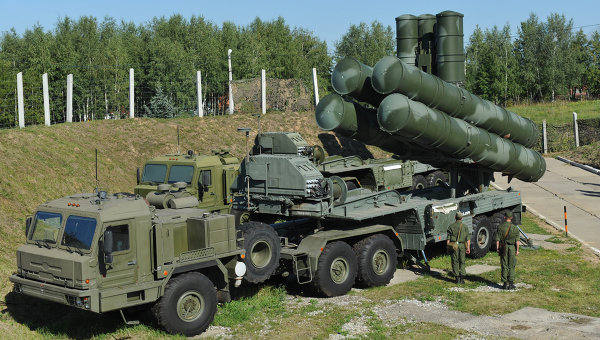
The Long March-2F rocket carrying the manned Shenzhou-9 spacecraft successfully blasts off from the Jiuquan Satellite Launch Center in Jiuquan on June 16. China Academy of Launch Vehicle Technology photo
BEIJING (PTI): China has sent its first woman astronaut in space as part of a three-member team to conduct its maiden manned docking, in its most ambitious space venture that will put it in an exclusive club.
The Shenzhou-9 or the 'Divine Craft' spaceship blasted off from the Jiuquan Satellite Launch Center in Gansu province at 6:37 pm local time (1607 IST) on Saturday.
About 10 minutes later, the spacecraft with China's longest and heaviest Long March-2F carrier rocket reached its intended orbit, bringing cheers all around.
This is the longest and heaviest rocket China has used so far, state television which telecast the event live, said. The launch also highlights China's long range missile capability.
Shenzhou-9 will dock with the Tiangong-1 space module currently orbiting about 343 km above the Earth where
the astronauts will work for more than a week.
This is the fourth time China has launched a manned mission into space. It is regarded as a prelude to China's plans to send a manned mission to Moon in the next few years.
Liu Yang, 33, who as an air force pilot has handled many emergencies with calm and compose, got the honour to become China's first woman astronaut and world's 57th space woman.
Hailing from Linzhou in Central China's Henan Province, Liu became an astronaut in 2010.
China conducted its first manned mission in 2003, followed it up in 2005 and 2008. If it completes its docking exercise successfully, it will become only the third country after the US and Russia to achieve a manned space docking.
"When I was a pilot, I flew in the sky. Now I am an astronaut, I will fly in the space. That will be a higher and farther flight," Liu Yang said at a nationally televised press conference on Friday.
"Aside from fulfilling the tasks, I want to experience the fantastic environment in space and appreciate the beautiful Earth and our homeland from the space," she said.
"Even though Tiangong-1 is very modest compared to the International Space Station (ISS), and even to the first Russian and US space stations, it is nonetheless a starting point for long-term Chinese expeditions in Earth orbit," space policy analyst Marcia Smith, founder and editor of spacepolicyonline.com, told news portal space.com.
This is an attempt by China to build its permanent space station besides its efforts to build its Global Positioning System (GPS).
Pang Zhihao, managing editor of Space International magazine published by the China Academy of Space Technology, said that many breakthroughs are set to be made in Chinese space technology during the Shenzhou-9 mission.
"The mission will test the manual docking, of which the success ratio is very high because astronauts on board can make adjustments to ensure the docking is accurate and safe.
"Furthermore, the 13-day mission in space will fully test the functions of Tiangong-1," Pang said.
 Previous Article
Previous Article Next Article
Next Article














The Indian Air Force, in its flight trials evaluation report submitted before the Defence Ministry l..
view articleAn insight into the Medium Multi-Role Combat Aircraft competition...
view articleSky enthusiasts can now spot the International Space Station (ISS) commanded by Indian-American astr..
view article